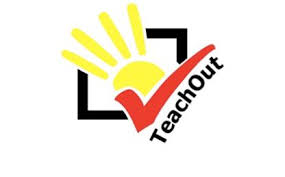JennyFromTheBlog
Friday, June 20, 2025
Teaching Emergent Bilinguals
Tuesday, June 17, 2025
Rethinking Sex and Gender
Saturday, June 14, 2025
Friday, June 13, 2025
Teach Out Summaries
Thursday, June 12, 2025
"Troublemakers" or Future Leaders?
Wednesday, June 11, 2025
Teach-Out Proposal
CHOOSE A TEXT: Review your whole blog to remind yourself about what we have read so far in class. What texts have stayed with you so far? What articles inspire you? What topic matters most to you in terms of your own work? Are there any of these texts that you would like to share with others in your life? Throughout this course, I have completed many readings and online resources. A few that resonated with me were Privilege, Power, and Difference by Allan Johnson, Colorblindness is the New Racism by Armstrong and Wildman, and the article "Six Ways U.S. History Textbooks Mislead Students About the History Between Central America and the United States". Topics that stood out to me were white privilege, taking those privileges for granted, and defensiveness when we are faced those issues. I would like to share Privilege, Power, and Difference. I really liked how the author, Allan Johnson, presented this as “All of us are part of the problem”. He also goes in-depth on the injustices that exist even though we are not fully aware of them. Those facts are something that I would like to share with others. |
WHO DO YOU WANT TO SHARE WITH? Are there people in your life with whom you would really like to talk about these texts? Colleagues? Students? Family members? Friends? Children? I would like to share this information with my two boys, ages 12 and 13. I think that it could be impactful if they are made aware of the privilege that they have and how to handle that privilege. |
WHAT FORMAT MIGHT WORK FOR YOU? Individual interview? Small group discussion? Art activity? Professional development workshop? Poster for your office? Pamphlet to share? Lesson plan? Etc? I would like to start with an activity where they use words to identify or describe themselves. I am thinking that I would like to present them with statements that they will need to identify as true or false having to due with inequalities in a number of domains. I would also like to present them with situations and ask them how they would react in said situations. Agenda:
|
Tuesday, June 10, 2025
History Textbooks Mislead Students View of Central America and U.S.
Teaching Multilingual Children I liked that this article broke down the information into 7 "guidelines". The guidelines helped m...
-
I chose to read " Six Ways U.S. History Textbooks Mislead Students About the History Between Central America and the United States...
-
Why are there diversity, equity, and inclusion policies and programs that help organizations comply with civil rights laws by ensuring tha...







